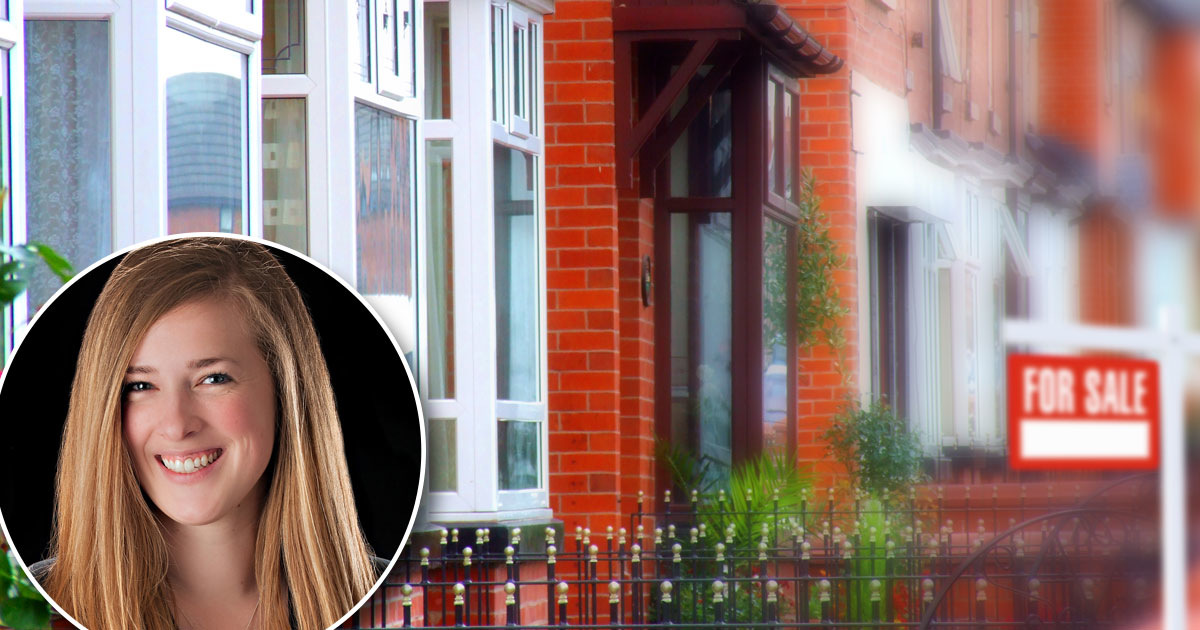It used to be part of the American Dream to get married and buy the perfect house with a white picket fence. But who says you have to be married to make that purchase?
Speaking as a single, career-driven female, I purchased a condo last fall—and it was one of the best decisions I've made. I spent far too long (and way too much money) renting crappy apartments from landlords who wouldn't fix my leaky faucet. Eventually I decided to be my own landlord, because who runs the world? Girls.
It may seem daunting, but let's break it down into steps.
START SAVING.
Open a completely separate account for your house fund. Set up an automatic transfer into that account. Whether it's $25 per paycheck or $500, start putting money into that account and DO NOT TOUCH IT. Even further, restrict the account so it doesn't show up online, making your only option to access funds physically going into the bank. Imagine how much money you'll save! Be the opposite of Jerry Maguire: Don't show me the money.
You'll need a few thousand dollars to pony up when you go to make an offer, typically between $2,000 and $5,000. These costs are for things like an appraisal, an inspection, a good faith deposit (a check solidifying your intent to purchase), and closing costs.
A typical down payment is between five and twenty percent of the value of the house. For example, on a $100,000 house you'd want at least $5,000 saved up, on top of the aforementioned costs. The more you're able to put down on the house, the less your monthly payment will be.
If you're lucky enough to still get presents for holidays from Great Grandma Ethel, ask for a deposit toward your future purchase. Maybe she'll be so impressed with your maturity and initiative that she'll slide an extra $5 into your card. Every little bit helps.
ESTABLISH OR IMPROVE YOUR CREDIT HISTORY.
You need established, positive credit history to purchase a house. You get this by taking credit out in your name and having a positive payment history. If you have no idea what your credit score is, make sure you check it.
Ideally, you want your score to be in the 700s, but mid 600s would be the low end for most typical mortgages. Think of it as an adult SAT score you can keep improving over time, with 850 being perfect.
Paying your student loans on time will help. If that's all the credit you have, now is a great time to apply for additional credit. You'll want at least three sources that have been open for a minimum of one year. If you open a credit card or two to help with this, pay the balance off every month. Don't bury yourself in debt while you're trying to save for a house. It will make things miserable in the long run.
CONSIDER PURCHASE OPTIONS.
Since you've started saving, you should get an idea of what you're looking to purchase. There were a million questions running through my head when I started looking. I suggest starting with:
Housing Type
House, condo, townhouse, or high-rise? It used to be fun to play MASH and leave it up to chance, but now is the time to sit down and weigh your options.
- Do you need a lot of space?
- Do you mind paying condo association fees?
- How close do you want to be to neighbors?
Neighborhood
- What part of town do you want to live in?
- Do you prefer a rural or urban area?
- Do you need easy access to the highway?
- Do you desire a quiet side street over a busy main road?
- Would parking on the street every night be OK?
Price Range
What can you afford, based on your current income? A mortgage lender can help you figure this out, but you can also get a good estimate at websites such as bankrate.com. If you can afford a monthly payment that is higher than your current rent, take the difference and put it in the savings account you've already established. You'll have that much extra saved per month—and you'll get used to living with a higher payment. You genius, you!
Length of Time
When are you looking to buy and how long do you want to live there? I bought a "starter condo." My goal is to live there for the next three to five years until I can move into a bigger place. This mentality changed my criteria a little bit when I was looking, because I knew I would sell or rent the place within five years when I could upgrade.
Once you've saved a decent nest egg and narrowed down your vision, scope out realtors and mortgage lenders in the area. You want to work with people who look out for your best interests and are familiar with your ideal area. This is a big purchase—you will want cheerleaders and a support system throughout the process. Ask friends and family who have recently purchased for recommendations, and you'll be on your way. Put that hard-earned money into a real investment.
As the infinitely wise guru of womanhood, Carrie Bradshaw, once said: "I like my money where I can see it—hanging in my closet." Wouldn't you prefer to have your money somewhere you can also live in?
Written by Cat Dugan, who loves all things Grand Rapids. She works in finance by day and bought the perfect starter condo last fall. When she's not working, she's supporting local businesses and enjoying the amenities of downtown city living.




